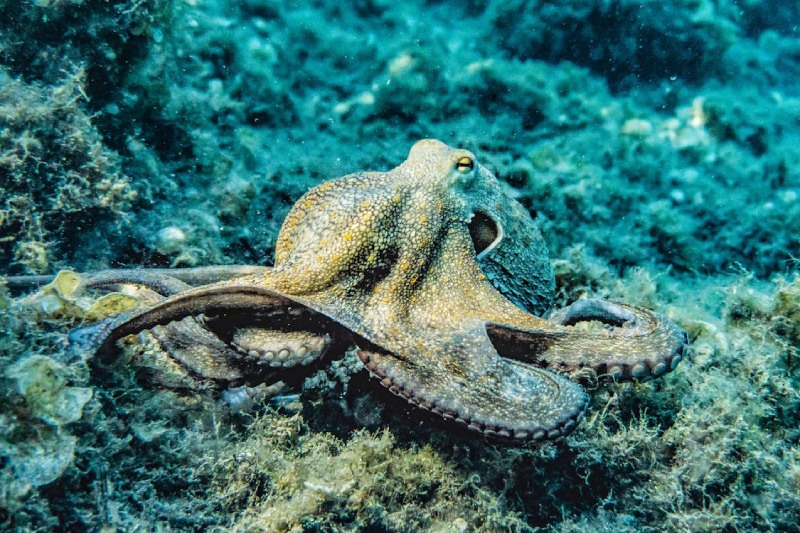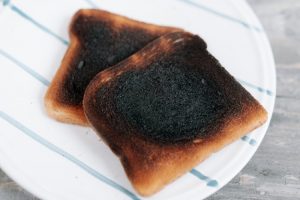Octopuses, with their eight long arms and bulging eyes, are intelligent and fascinating creatures. But what fuels these enigmatic invertebrates? Let’s dive deep and explore the dietary delights of octopuses.
Anatomy and Feeding Behavior of Octopuses
Octopuses lack teeth, but they do have a sharp beak similar to a parrot’s. This beak is used to tear into prey, while a drill-like tongue called a radula can pierce through the shells of clams and mussels. Their eight arms, equipped with suckers, are not just for grasping; they also contain taste receptors, helping octopuses to identify food by touch.
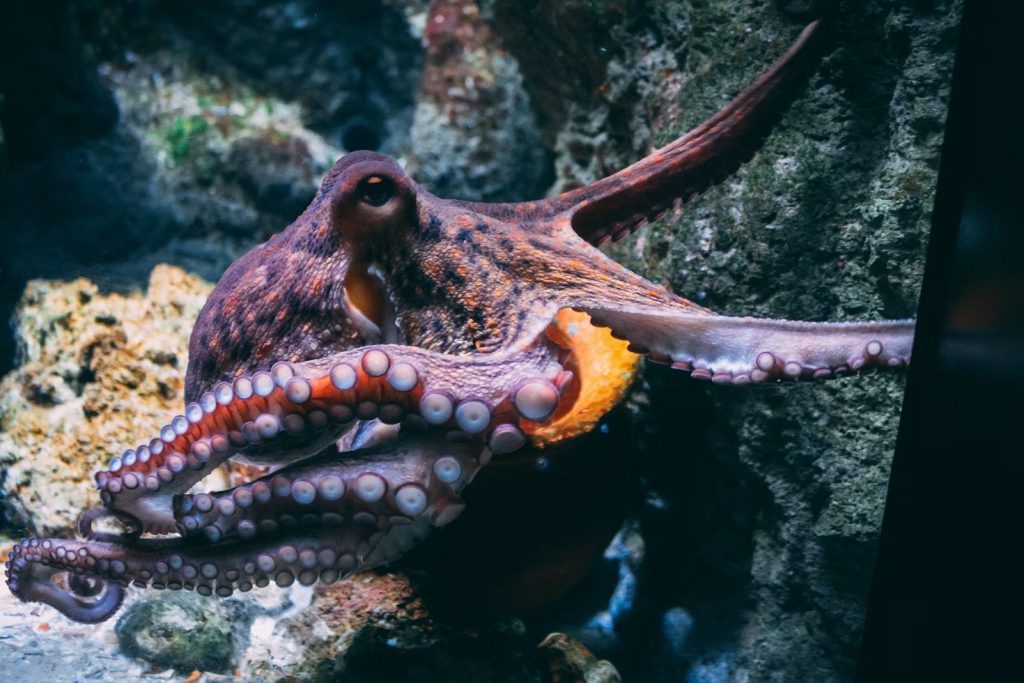
Dietary Preferences of Octopuses
Octopuses are opportunistic carnivores. Their menu varies depending on the species and habitat, but generally includes:
- Crustaceans – crabs, shrimp, and lobsters are popular choices, thanks to their soft bodies that are easily accessible to the octopus’s grasp.
- Mollusks – snails, clams, and mussels provide a nutritious meal. Octopuses use their beak to break open shells or employ their radula to drill through them.
These two groups make up the bulk of an octopus’s diet. But they aren’t picky eaters! Some octopus species also enjoy:
- Fish – smaller fish are fair game, especially for larger octopus varieties.
- Other cephalopods – cannibalism isn’t unheard of in the octopus world. Some species will consume other octopuses if the opportunity arises.
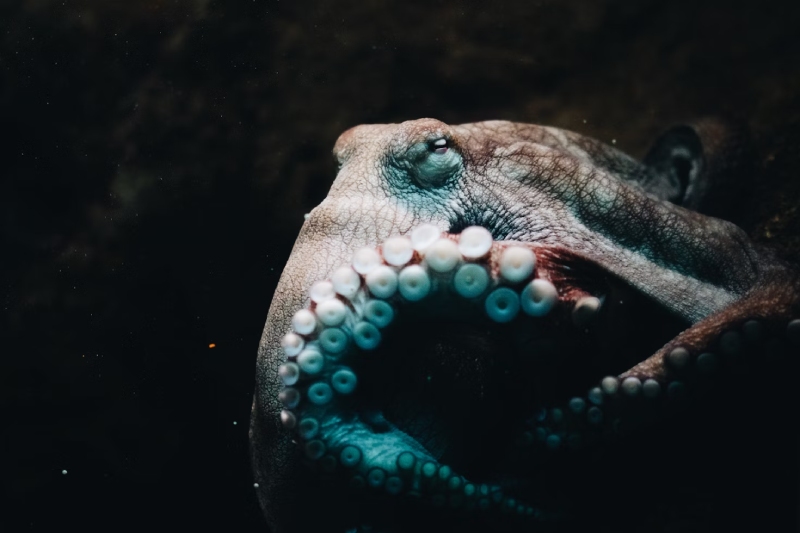
Hunting Techniques
Octopuses are clever hunters. They use a combination of tactics to capture prey:
- Camouflage. Their ability to blend in with their surroundings allows them to ambush unsuspecting victims.
- Quick bursts of speed. Octopuses can propel themselves through water in short, powerful spurts to snatch prey.
- Problem-solving skills. Some species have been observed strategically opening jars or manipulating objects to reach food.
Captive Feeding and Dietary Studies
In aquariums, octopuses are typically fed a varied diet to mimic their natural feeding habits. This might include live crabs, shrimp, and small fish. Studying their food preferences in captivity helps researchers understand their nutritional needs and behavior in the wild.
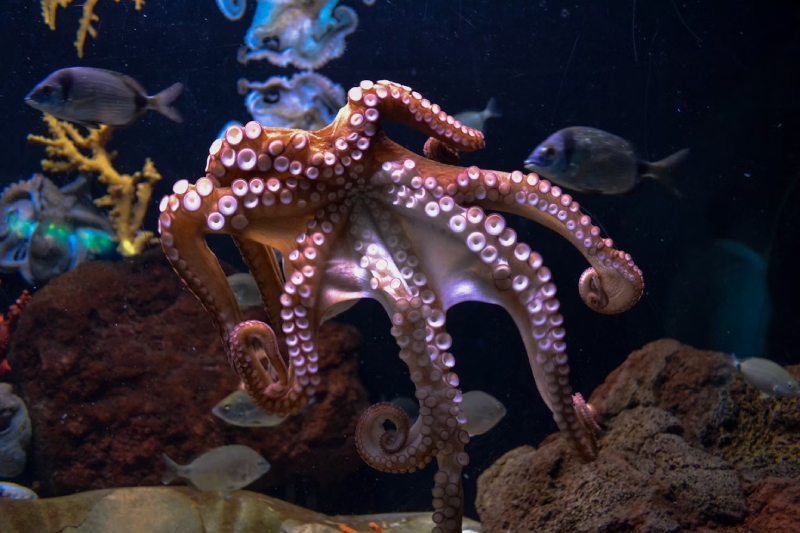
Impact of Diet on Octopus Health and Behavior
A balanced diet is vital for an octopus’s health. The right mix of nutrients keeps them strong, helps them fight off diseases, and contributes to successful reproduction. Studies have also shown that a varied diet can influence an octopus’s behavior. For example, octopuses fed a richer diet with more crustaceans exhibited bolder personalities.
Conclusions
Octopuses are adaptable eaters, enjoying a diverse range of prey depending on their environment and species. From cracking open shells to outsmarting their victims, their hunting techniques are as impressive as their varied diet. Understanding what octopuses eat not only sheds light on their fascinating lives but also helps us ensure their well-being in captivity and the wild.
